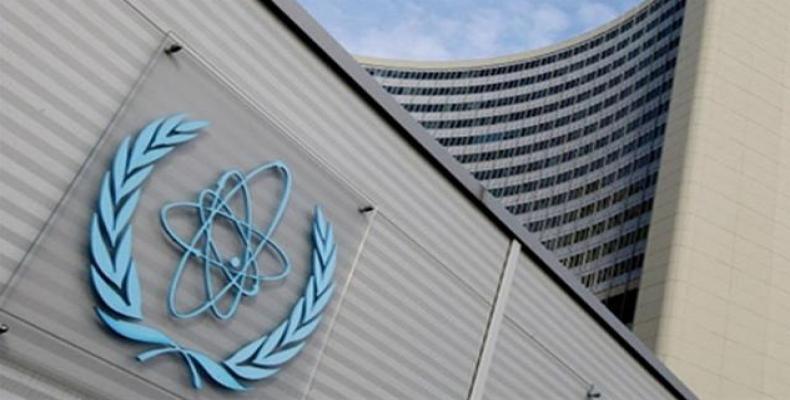Vienna, July 6 (RHC)-- The International Atomic Energy Agency (IAEA) says it will hold an emergency meeting on Iran next week, a few days after a planned increase in the level of Iran's uranium enrichment, which will come as part of the country's reduction of its commitments under a multilateral 2015 nuclear deal to reciprocate Europe's inaction to fully abide by the agreement.
A spokesman for the UN's nuclear watchdog announced on Friday that the meeting of the IAEA's Board of Governors will be held on Wednesday, July 10. The emergency meeting will be held at the request of U.S. Ambassador to International Organizations Jackie Wolcott.
The request was later criticized by Iran's mission to the IAEA as "a bitter irony." A statement by the Iranian mission said: "It is indeed a bitter irony that the concern about the Joint Comprehensive Plan of Action (JCPOA)'s implementation is being raised by the very regime which has practically violated the JCPOA through its illegal and unilateral withdrawal from the deal, and has pressured others to do the same."
"The fact that the United States, as the first and main violator of the JCPOA, has made such a request indicates its isolation, which results from its opposition to multilateralism and the rule of law in international affairs."
According to a statement by the U.S. mission in Vienna, the meeting requested by Wolcott is scheduled to be focused on Iran's move to exceed the 300-kg limit of low-enriched uranium stockpiles as stipulated under the JCPOA.
The move came as part of the first phase of Iran's reduction of its JCPOA commitments. It is to be followed by the second phase on July 7, when Tehran's deadline for Europe to fully meet its side of the bargain expires.
In the second phase, Irans Arak heavy water nuclear reactor -- which was agreed to be redesigned under the agreement -- will resume its previous activities. Iran will also increase its enriched uranium purity, ending its commitment to the 3.67% purity level it had agreed upon in the nuclear deal.
The moves, Iran says, are aimed at prompting the Europeans to honor their end of the bargain. "Iran's recent decision, which was taken in response to the situation created by the U.S., is aimed at restoring the missing balance to the deal, and is totally in compliance with the provisions of the agreement, especially Articles 26 and 36," the statement by Iran's mission to the IAEA said Friday.
The Iranian mission also stressed that the recent developments have nothing to do with issues related to the IAEA's safeguards or the duties of the IAEA's Board of Governors.
"Issues related to the JCPOA are discussed and conferred on within the mechanisms specified [in the JCPOA]," the statement added.
Meanwhile, Russian ambassador to international organizations in Vienna, Mikhail Ulyanov, also reacted to the planned IAEA meeting, saying it is "not a proper place to consider" Iran's decision to reduce its nuclear commitments. "From the viewpoint of the IAEA mandate they don't constitute violation or concern," Ulyanov said.


